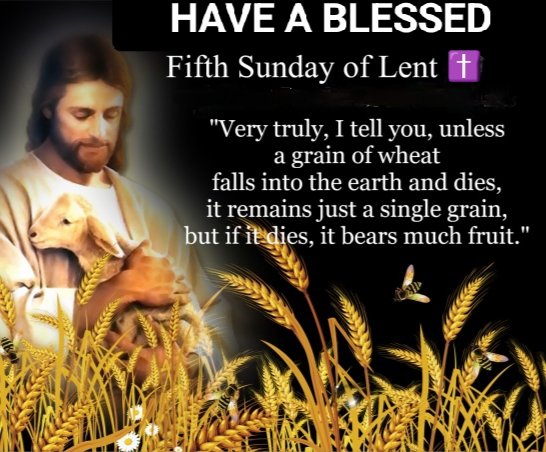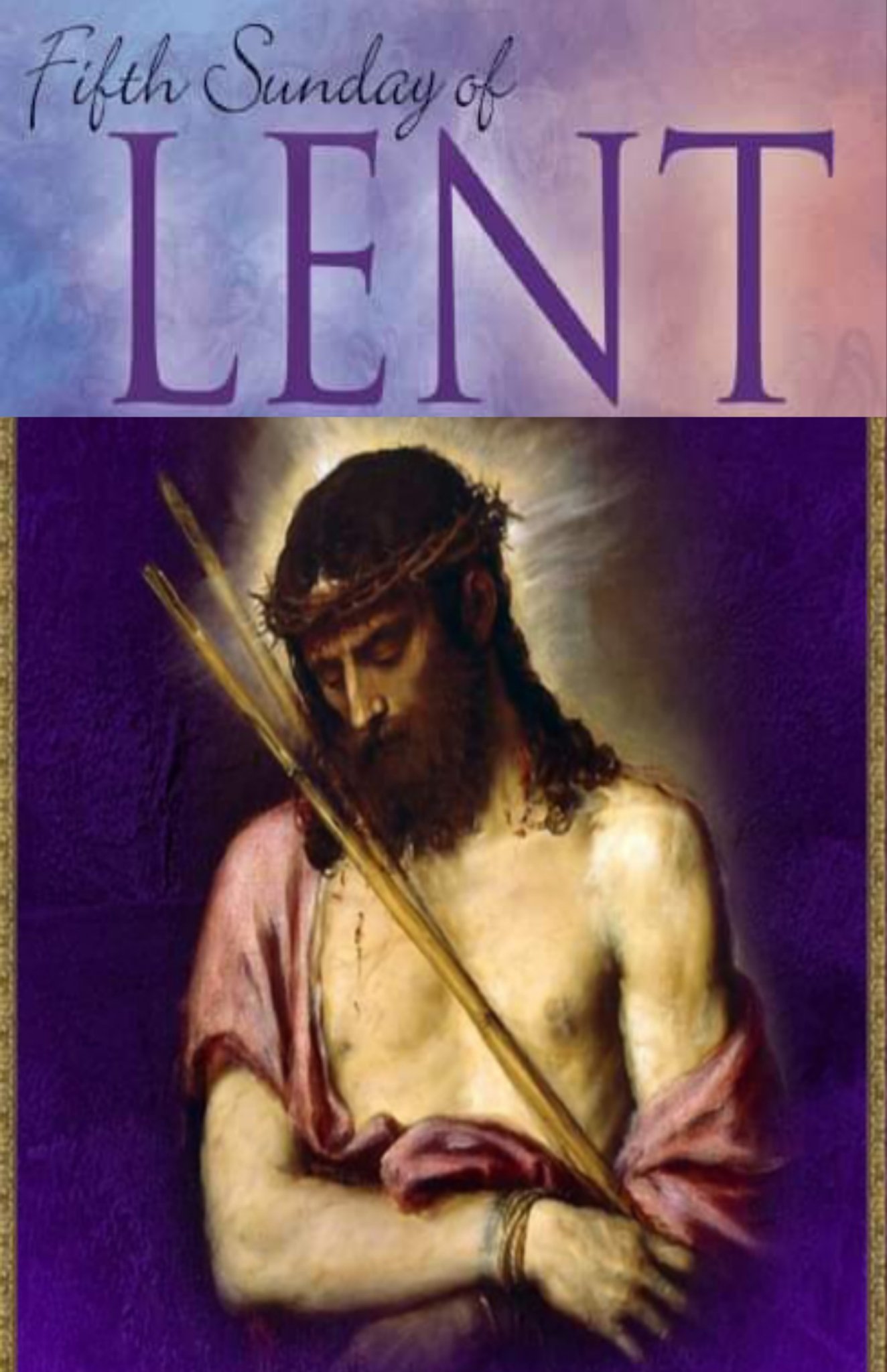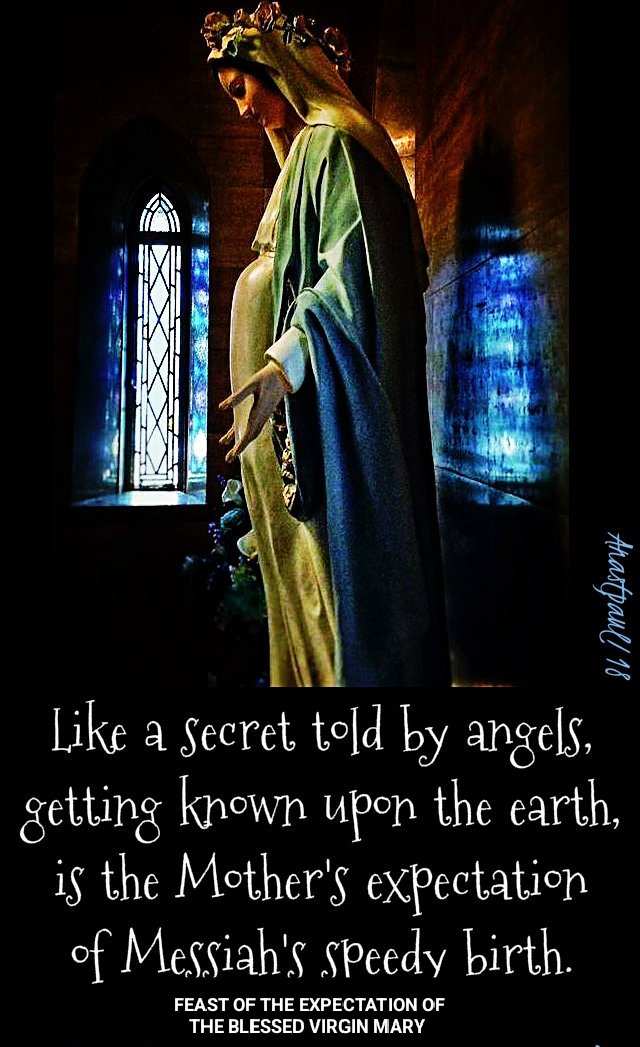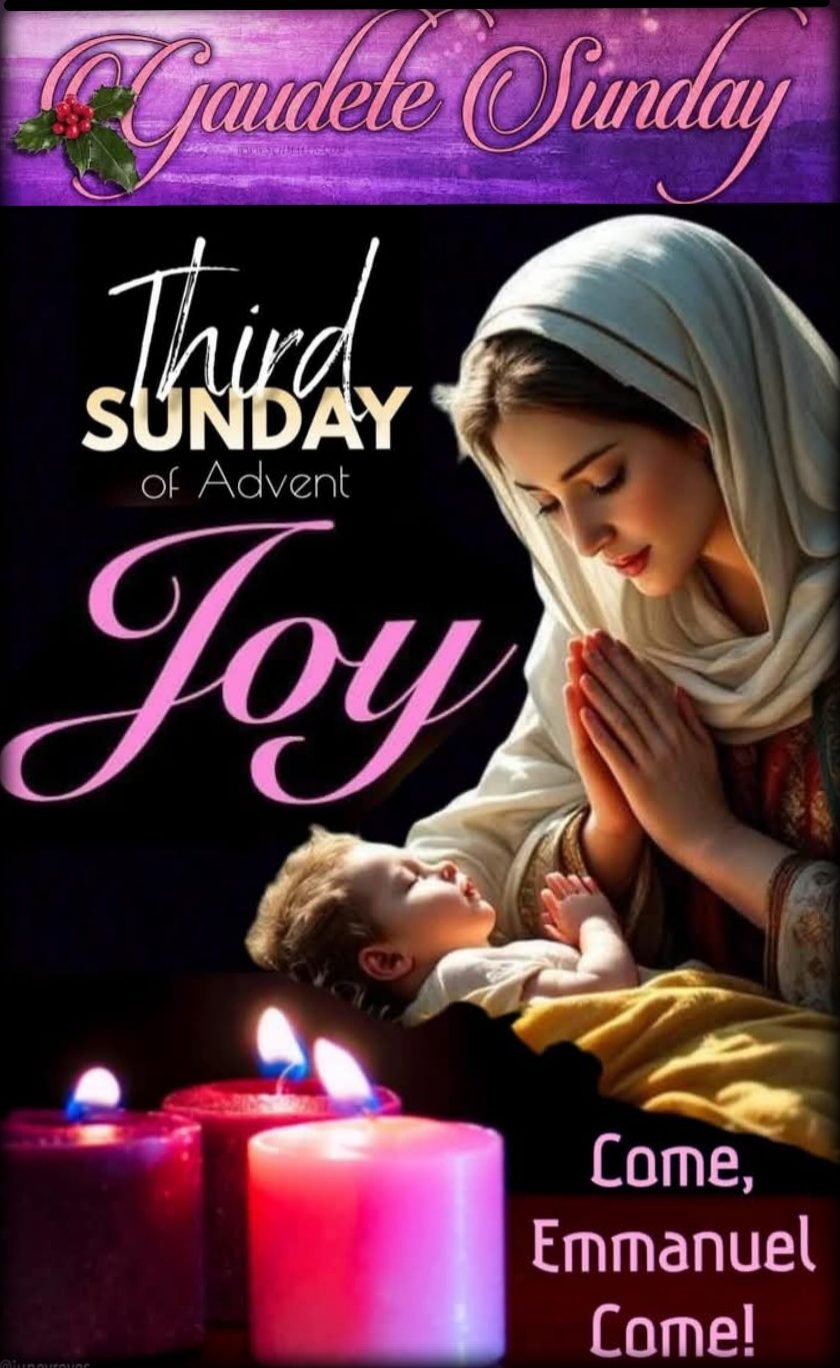
FEAST OF SAINT PATRICK OF IRELAND /SAINT PATRICK’S DAY – 17th MARCH
March 17, 2024
Hebrews 5:7
March 17, 2024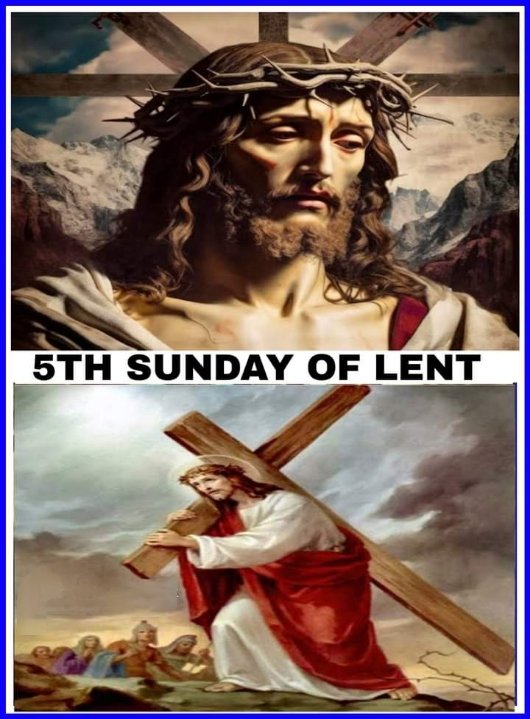
THE FIFTH SUNDAY OF LENT
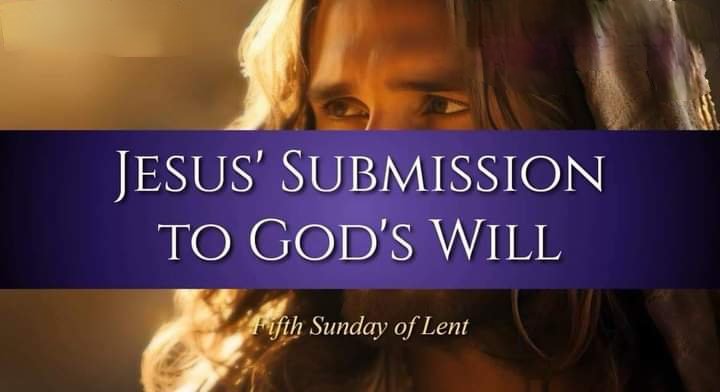
Some Greeks who had come to worship at the Passover Feast
came to Philip, who was from Bethsaida in Galilee,
and asked him, “Sir, we would like to see Jesus.”
Philip went and told Andrew;
then Andrew and Philip went and told Jesus.
Jesus answered them,
“The hour has come for the Son of Man to be glorified.
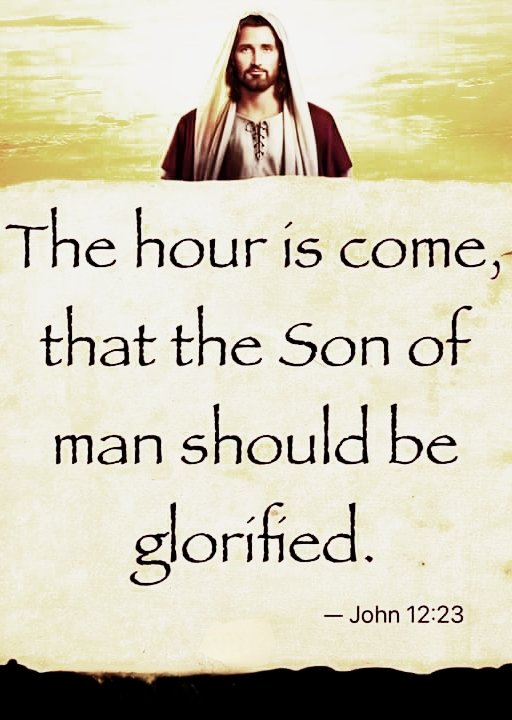
Amen, amen, I say to you,
unless a grain of wheat falls to the ground and dies,
it remains just a grain of wheat;
but if it dies, it produces much fruit.
Whoever loves his life loses it,
and whoever hates his life in this world
will preserve it for eternal life.
Whoever serves me must follow me,
and where I am, there also will my servant be.
The Father will honor whoever serves me.

“I am troubled now. Yet what should I say?
‘Father, save me from this hour’?
But it was for this purpose that I came to this hour.
Father, glorify your name.”
Then a voice came from heaven,
“I have glorified it and will glorify it again.”
The crowd there heard it and said it was thunder;
but others said, “An angel has spoken to him.”
Jesus answered and said,
“This voice did not come for my sake but for yours.
Now is the time of judgment on this world;
now the ruler of this world will be driven out.
And when I am lifted up from the earth,
I will draw everyone to myself.”
He said this indicating the kind of death he would die. – Jn 12:20-33
This very thought should put us all to shame, for what repayment does the very best of us make for the incredible love he has shown for us? We grumble and complain when some small cross is laid on our shoulders; we are full of laments if life is not running smoothly for us; we cannot understand why God should let certain things happen to us, his friends!
But see for a moment what the lot of his beloved Son was on earth. Born and reared in extreme poverty; insulted and offended by those he wanted to teach; quickly forgotten by those who benefited by his miracles; hounded by his enemies and betrayed by one who had been his disciple for over two years and who had sat at table with him that same night.
Deserted in his moment of trial by those very ones who had sworn undying allegiance to him. Then followed the torments wished on him by his enemies—those he had come to save; the mock trial and illegal condemnation; the scourging at the pillar; the crowning with thorns; the carrying of the cross and finally the three hours of intense torture and agony while his body hung on the cross!
In this, the fifth Sunday of Lent, the Church invites us to turn our attention to the realities that are perhaps the most ‘scandalous’ in human experience, the death of a loved one. In this Gospel we see all those who are being supportive of Martha and Mary at the moment of their brother, Lazarus’ death.
Previously called “Passion Sunday,” this Fifth Sunday of Lent marks the beginning of Passiontide, a deeper time of Lent. This is the third Sunday of the scrutinies for the preparation of adult converts, and the final Sunday of Lent before the beginning of Holy Week. The Liturgy of the Word of this day speaks of re-creation, resurrection, and new life.
The Holy Week, begins next Sunday with Palm Sunday of the Lord’s Passion. Today we focus our attention on the nearness and coming of the hour of Jesus’ glorification. The glorification of Jesus refers to his suffering, death and resurrection, for the life of the world.
Jesus had already told his followers that he would lay down his life for them, like a good shepherd willing to die for his flock. Other sheep too, Jesus had said, not belonging to the original fold, would eventually join his flock (see the Gospel of John, chapter 10, verses 15 and 16).
Mention in the Gospel today of the appearance of Greek Gentiles, that is, non-Jewish people, wishing to see Jesus, was an indication that it was time for Jesus to lay down his life, the hour of his glorification. Events surrounding the person of Jesus had been building up to a crisis or turning point in Jesus’ ministry, and the time had now come.
In Greek the word is “kairos,” meaning the acceptable time, God’s time. This is in contrast to the mere passing of hours, “chronos” in Greek, from whence comes our word, “chronology.” In regard to Jesus, we are now hearing about the “kairos,” the acceptable, appointed, opportune and God-infused moment, when all would be accomplished according to God’s loving plan.
The three lessons from Scripture this Sunday all speak of time and have a fitting connection with Jesus coming to his “hour.” Jeremiah the Prophet (from the 7th century before Christ) says, “The days are coming.” The Letter to the Hebrews speaks about “In the days when Christ came in the flesh.” And the Gospel text this Sunday announces, “The hour had come.”
For those around Jesus, the glorified Son of God was too readily thought of as an undefeatable world conqueror sent by God. But for Jesus “being glorified” did not mean that at all. It referred, rather, to his crucifixion, resurrection and ascension into heaven.
When the people thought of the conquest of world armies by the Son of God, Jesus meant the conquest of the cross. For Jesus, death is the means to gaining life, and in the case of Jesus, the means of bringing new and eternal life to all people.
In the parable of the seed that dies, Jesus certainly is referring to himself, but the parable is to be understood as applicable to every believer as well. All must pass through death to reach eternal life and Jesus says, only by spending life do we regain and retain life.
According to Jesus’ teaching, there are two ways of loving life. The wrong kind of loving life has to do with self-seeking and false security. One’s advancement and safety are the driving forces of life. Jesus insists that the hoarding of life for one’s own gain means in the end losing all.
For those who spend their life for God and others, the right kind of loving life, in the end will gain true life. “For whoever would save his life will lose it, and whoever loses his life for my sake and the Gospel’s sake, will save it” (see Mark 8:35; Matthew 16:25; Luke 9:24; Matthew 10:39; Luke 17:33).
All followers of Jesus, in order to produce fruit for Christ, must be where Christ is, which includes passing through death. As Mr. Carson, the head butler on Downton Abbey, said, “We shout and scream and wail and cry but in the end we all must die.” And Mrs. Hughes, his co-worker replied, “Well, that cheered me up.” A humorous take on one of life’s serious certainties: death!
Along the same lines, Saint Benedict in his Rule for Monks reminds them: “Keep death daily before your eyes” (RB 4.47). The point is not to be morbid or preoccupied with death, but that its reality “can be seen as the necessary and desirable doorway to eternal life” (Fr Terrence Kardong, OSB, in “Benedict’s Rule,” p. 89).

The Gospel teaching is clear: if Jesus had to die to bring others to life, the disciple of Jesus must pass through death to self in order to reach eternal life. This includes physically dying, of course, but even before that, coming to prefer the things of God to one’s own wants. This is the heart of Jesus’ words: “If anyone wishes to come after me, let him deny himself, take up his cross and follow me,” (Mark 8:43), a parallel to words of Jesus in today’s Gospel passage: “If anyone serves me, let that one follow me” (John 12:26).
What can one expect in doing so? The follower will be with Jesus, in the love of the Trinity for eternal life. While such a prospect may not seem like a very attractive one, I would reply: you may be surprised.
Jesus speaks to his followers of his imminent departure to God but assures them of his return to bring them to the eternal habitation of God. This is so that the disciples may be where Jesus is.
What is being called for is selfless service, service of God and neighbor. Does this mean going to a far off place and opening a home for the dying? For most of us, probably not, but certainly the daily giving to those with whom we live, work, study, meet on the street or in stores, giving way and truly loving even the unruly. Only then will we be true followers of Christ and have true life in Christ, bearing good fruit for the Kingdom of God.
Here is a quote that sums up well the meaning of the mystery of Christ for this Sunday in Lent:
“The crucifixion and death of Jesus is the supreme expression of love and in this we have the supreme revelation of the life of God, the glorification of the name of God” (J. Volckaert, SJ, in “Breaking the Word”).
REFLECTION:

Philip and Andrew were taking their discipleship seriously by introducing others to Jesus. How can we, as disciples, introduce others to the Lord Jesus today? Do we take advantage of the opportunities to speak to others about our faith when they ask?
The parable of Jesus about the grain of wheat dying and producing new life refers to his dying and rising, but it also has implications for the cycle of nature and human experience. In our own lives have we noticed when there has been dying to some of our hopes and dreams, new life has come from these times? When we have experienced moments or times of darkness, has light eventually dawned?
The voice that Jesus heard from his Father he says is for us rather than for him. The promise of new life coming from his dying, death and resurrection, is the voice that we can hear from his word. Are we listening?
Jesus’ statement that when he is lifted up, he will draw everyone to himself. When we see crosses or crucifixes, do they remind us of Jesus’s love of us?
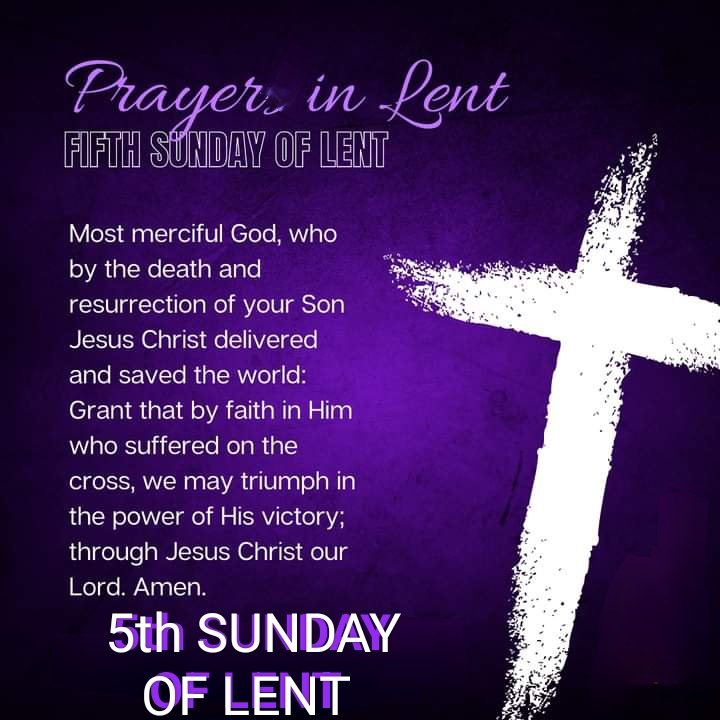
PRAYER
Look upon us, O Lord,
and let all the darkness of our souls vanish before the beams of thy
brightness.
Fill us with holy love, and open to us the treasures of thy wisdom.
All our desire is known unto thee, therefore perfect what thou hast begun,
and what thy Spirit has awakened us to ask in prayer.
We seek thy face,
turn thy face unto us and show us thy glory.
Then shall our longing be satisfied,
and our peace shall be perfect.
(Augustine, 354 – 430)
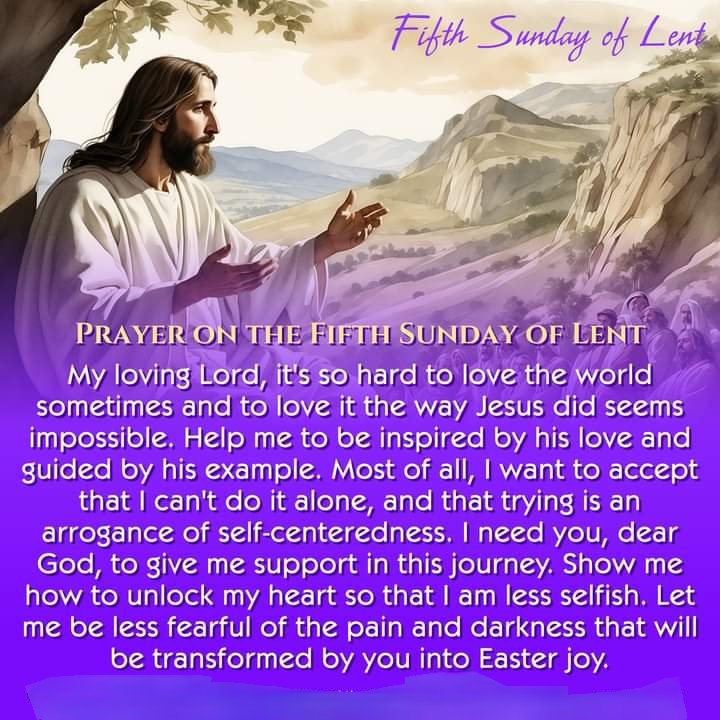
PRAYER FOR THE FIFTH SUNDAY OF LENT
My loving Lord,
it’s so hard to love the world sometimes
and to love it the way Jesus did seems impossible.
Help me to be inspired by his love and
guided by his example.
Most of all, I want to accept that I can’t do it alone,
and that trying is an arrogance of self-centeredness.
I need you, dear God, to give me support in this journey.
Show me how to unlock my heart
so that I am less selfish.
Let me be less fearful of the pain and darkness
that will be transformed by you into Easter joy. Amen
